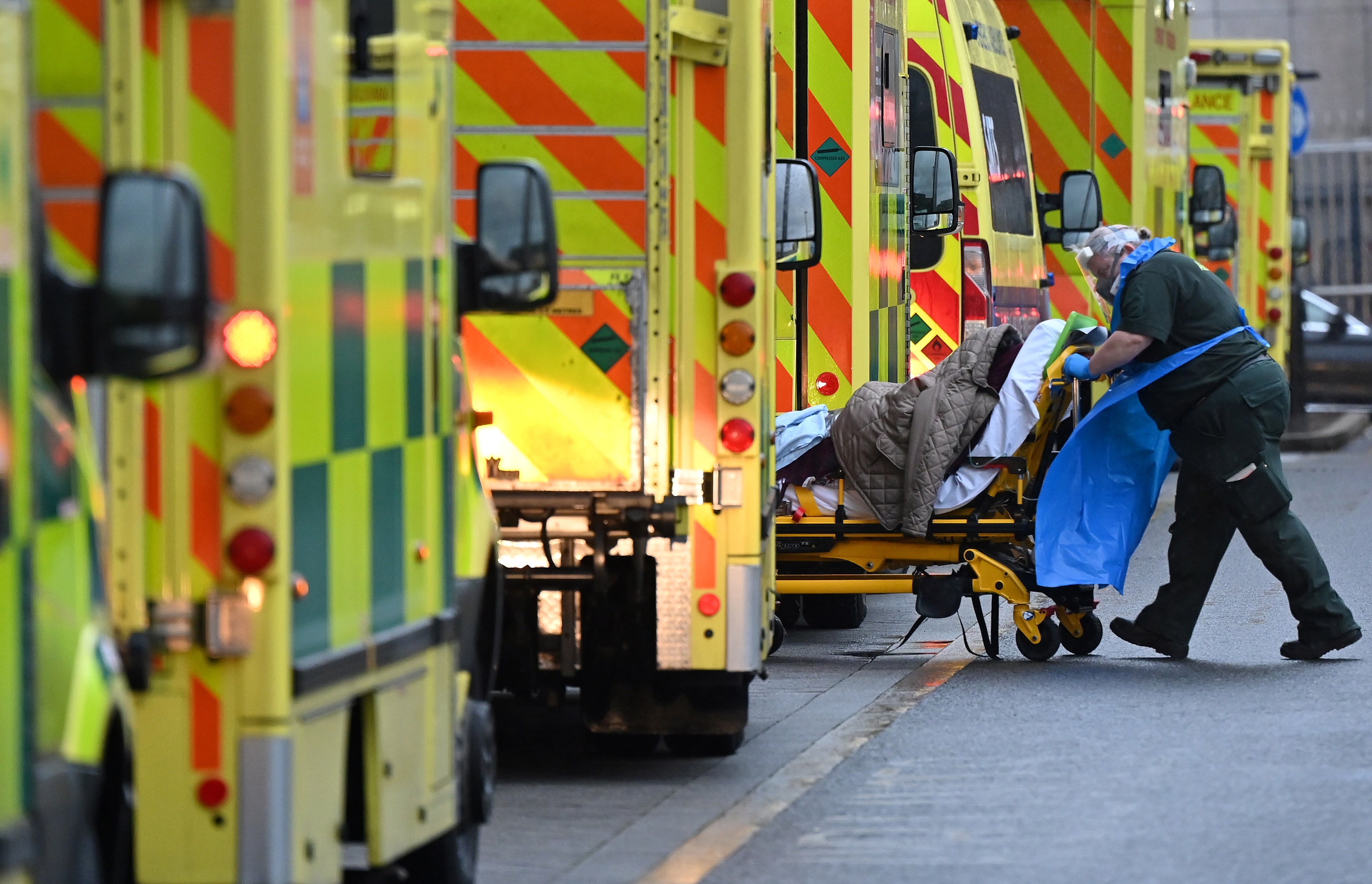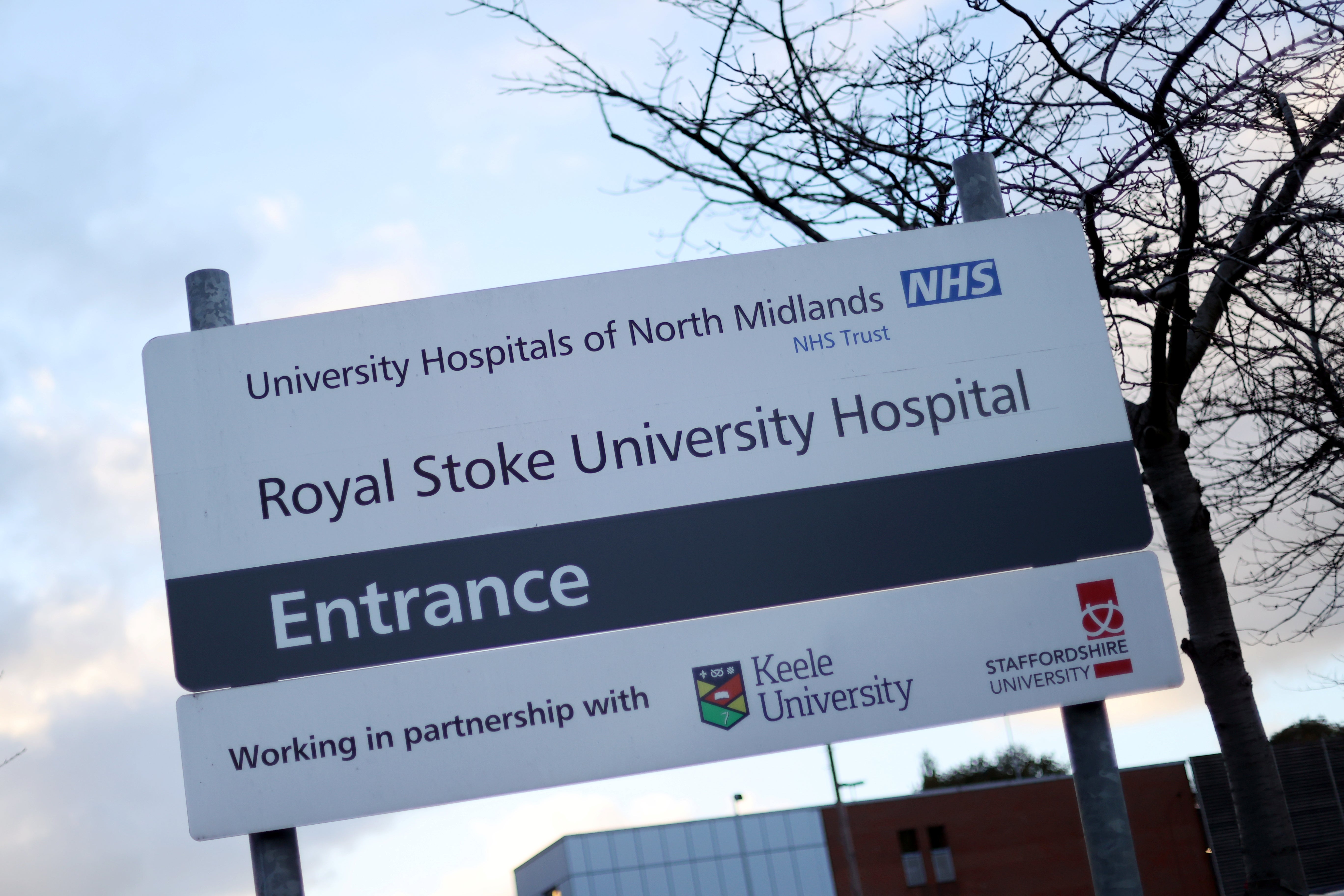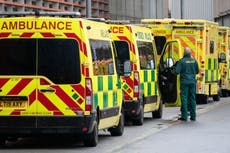Hospital hits back at coroner for ‘singling it out’ after patient died waiting eight hours for ambulance
Ambulance service says it has raised concerns for six years over handover delays

An NHS trust has hit back at a coroner who criticised a ‘gross failure of care’ that saw a patient die after waiting eight hours for an ambulance.
Staffordshire assistant coroner Sarah Murphy previously warned there was a risk of future deaths unless University Hospitals of North Midlands (UHNM) took action to address the “excessive” delays in handing over patients at the Royal Stoke University Hospital.
But the trust claims, in a response published recently by the chief coroner, that it has been unfairly singled out over what it says is a national problem, as a record 4,721 ambulance hours were lost last month outside its A&E department due to delays in taking patients.
This is the equivalent of taking around 12 ambulances out of service each day.
The local ambulance trust has also been critical of handover delays at the hospital, which has a knock-on effect for their service.
A West Midlands Ambulance Trust spokesperson said: “Despite some of the lowest numbers of patients conveyed in the last seven years, we have the highest level of ambulance hours lost due to handover delays.
“The situation is very serious and represents a significant risk to patient safety. We don’t currently see actions being taken that are reducing this risk.”

NHS leaders across the country have been told they must address ambulance handover delays “immediately” as stroke patients are left waiting hours for an ambulance which should come within 18 minutes.
West Midlands Ambulance Service claimed it has been raising concerns over handover delays across the region for six years but said the problem has become progressively worse every year.
In response to questions to its board executives, shared with The Independent, West Midlands Ambulance Service said delays at the Royal Stoke Hospital site were presenting “particularly high risks to patient care”.
The ambulance trust said despite growth in 999 calls, the number of patients taken to Royal Stoke has dropped by 11 per cent compared to pre-Covid times and is lower than it has been for seven years.
It said: “Despite this, the number of ambulance hours lost due to handover delays exceeding 15 minutes, the nationally mandated standard for a patient handover, continues to rise month on month, with the highest rate of rise occurring since April 2021.”
Coroner Ms Murphy sent a “prevention of future deaths” warning to UHNM and national regulator NHS England last November, three months after the inquest into the death of 50-year-old Shaun Mansell.
She warned the hospital and NHS England in November last year that there were “excessive delays in handing over patients at hospital” with some being held for over four hours at UHNM.
She said this impacted the ambulance service’s ability to respond to other patients.
A statement in response from UHNM said on the night Mr Mansell died “ambulances were delayed at UHNM as they were at most hospitals up and down the country”.
It continued: “I cannot understand why UHNM would be singled out in this way, in relation to this incident, when the reason for ambulance delays at hospitals are multifactorial and rely on many system partners and organisations, including the ambulance service, to resolve.”
The trust said it would not be able to make the difference required to reduce ambulance delays alone as it is a “national issue”, however the trust said it took its share of the responsibility “very seriously.”
Among the issues causing handover delays, UHNM said around a third of patients who attend A&E do not need to be there, and patients arrive because they cannot get an appointment with their GP as the service faces a workforce crisis.
The trust also said patients are waiting too long in emergency departments for mental health assessments from other providers, and that A&E departments would be less congested if this were improved.
In its response to the coroner, NHS England said it recognises “hospital handover delays are a significant challenge for ambulance services and acute trusts both regionally and nationally, and tackling this is a high priority for NHS England and NHS Improvement.”
NHS England has previously sent two letters to hospital chiefs asking them to address handover delays “immediately”, however ambulance sources have said the problem has only got worse.
Join our commenting forum
Join thought-provoking conversations, follow other Independent readers and see their replies
Comments


Bookmark popover
Removed from bookmarks